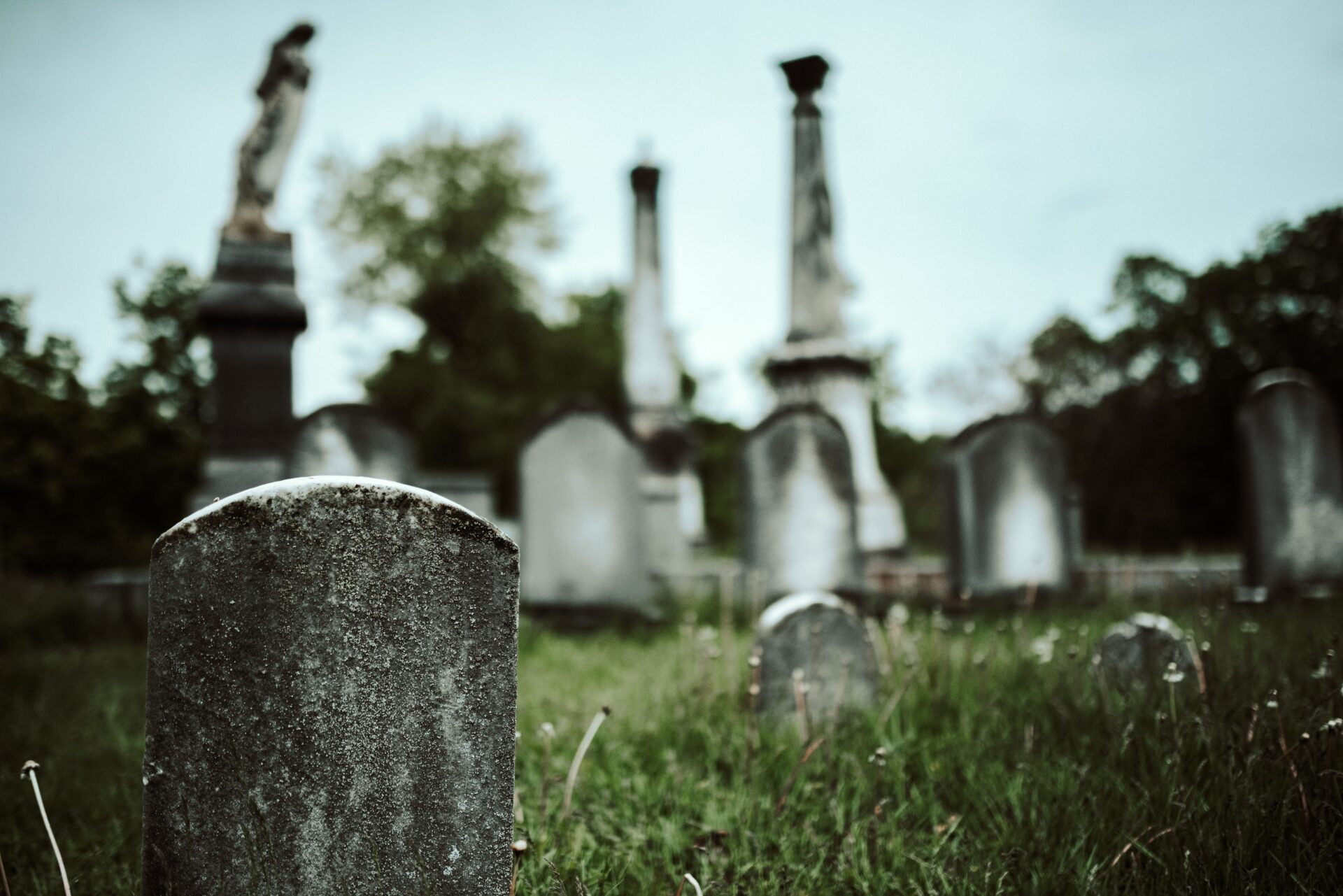
Photo by Sandra Seitamaa on Unsplash
Walking around a Confederate cemetery
During a recent visit, relatives in Virginia drove us through the countryside of Fredericksburg when we passed a cemetery whose arched entry gate declared, simply, “Confederate Cemetery.” It looked to me like something out of a history book. Stop the car, I asked. I wanted to get out and walk around the cemetery. It felt to me like being behind enemy lines. For me, being raised in the Northeast, the Confederacy was a symbol of those who believed in and defended the sinful practice of slavery, when Southern whites owned and oppressed Black people. On that same trip, I witnessed a number of pickup trucks whizzing around with big, bold Confederate flags waving the errant history of one person’s desire to own another human being, primarily for economic gain. It felt spooky to see Confederate flags planted by tombstones, the way American flags mark the graves of veterans in Northern cemeteries. To me, the Confederates deserved to lose the Civil War because slavery was just plain wrong and evil.
I tiptoed around the cemetery, feeling like everything there opposed what I hold dear, and yet something seemed to be drawing me to experience what to them is sacred ground. I wondered if any members of my family might have been drawn to the Confederate side, and I could grasp how in the Civil War some brothers fought against brothers. I considered… if there but by the grace of God go I? As I wandered, I read the names, dates, and inscriptions of the boys who died, many the age of my grandsons. I thought of those boys, how they were raised, and I became haunted by the question: could I blame them? Were they accountable for fighting for the wrong belief and the evil behavior of slavery? I hated what they died fighting for, but I could not hate them.
As I walked around the Confederate cemetery, I wondered what other choice these boys could have made. The values they were raised to believe to be true were affirmed by their schools, their textbooks, their newspapers, their families, friends, their whole culture, and worst of all, their churches. Their town leaders, sheriffs, teachers, parents, and pastors believed in slavery. There are verses in the Bible that could be used to justify both sides of just about anything, and the South used the Bible to prove their point: “Slaves, obey your earthly masters with respect and trembling, in singleness of heart, as you obey Christ.” (Ephesians 6:5). The word slave appears in the Bible more than 250 times. So, I couldn’t really blame these boys for fighting for what they were raised to believe. It wasn’t as though they were presented with the options of good and evil, and they chose evil.
This raised the big question: can people be held accountable for their beliefs and actions, even for killing others in unjust wars, if what they’ve been raised to believe is all they know? I found myself torn, but growing in understanding that the boys six feet beneath where I walked really couldn’t be blamed, because they could not have known differently.
But then, how far to carry this question? What about the Nazis? Or what about what Europeans did to the indigenous peoples of the Americas? Or, what about any raised in a totalitarian state ruled by authoritarian leaders who control the media, rewrite the history books, and demand loyalty to their extreme beliefs? Can ordinary people be blamed if they follow the culture in which they are raised? But then, where is accountability? Where is justice?
As I walked around a Confederate cemetery, I wondered what other choice the young soldiers buried there could have made. The values they were raised to believe to be true were affirmed by their schools, their textbooks, their newspapers, their families, friends, their whole culture, and worst of all, their churches.
Where is justice for the Black people who were hanged, raped, worked to the bone, torn apart from beloved spouses and children, treated and traded as property, denied basic rights, forbidden to drink water from public fountains, and, most importantly, stripped from freedom? There must be justice for victims. On the other hand, what to do about condemning the perpetrators, even if their entire culture affirmed their beliefs, however oppressive they were, and they didn’t know any different from how they were raised?
As I juggled these conflicting questions for some time, after walking around the Confederate cemetery, four clarifying ideas rose to the surface:
First, kindness. Kindness is a significant quality of almost every major religion. Even agnostics and apatheists (those who are apathetic about matters of the faith) hold to the societal undergirding of kindness. When considering those who violated the rights and freedoms of another, ask if they were kind. If not, they should be blamed for breaking a basic bond of human relationships.
Second, Jesus taught “Love your enemies.” (Matthew 5:44). This may be the most uniquely Christian verse in the New Testament. To love is to desire the highest and best interests of the other. It does not mean to have an affection for the other, to enjoy their company for lunch, or even to like them. Jesus teaches that we are to desire the highest and best interests of our enemies, even those who oppress or persecute others. We are to hate evil deeds and evil beliefs, but to love the individual. I hate what the Confederacy stood for, but I must find it in my heart to practice forgiveness even of my enemies.
Third, Christ against culture. Societies seem to sink to their depths when their religions simply affirm their own cultural mores. The South affirmed slavery. The German culture affirmed Hitler’s murderous campaigns. European explorers to America treated Native Americans as savages. Even some modern Americans have the potential to venerate militarism and, in some places, to do to minorities, immigrants, LGBTQ people, and even to women what the South did to Black people. Our churches and their leaders, clergy and lay, are well-served to study how Jesus of Nazareth often risked standing against his culture, including his established religion, to point the way to God’s Kingdom. Every church should question whether it simply affirms popular culture or whether it risks boldly standing with and speaking for those who are on the margins and with those most oppressed by others.
Finally, name it. Name the evil and work to repair justice. Name the evil of what the Confederacy stood for, so that even the dudes driving pickup trucks with Confederate flags regurgitating out of their back end will hear it named as a symbol of evil injustice to Black people. Name the evil. But wait: we like to be polite, we want people to like us, we don’t want to offend, and we certainly don’t want to upset potentially violent persons who might threaten us. It seems almost like a ministry in service to God to name evils and to work towards repairing the breaches that divide one people against another.
I suppose the old cliché is accurate, that when you point a finger at another, three fingers point back at you. Before I can assign blame to others, even in historic cemeteries of those who were enemies of what I believe to be true, good, and right, I had better examine myself and consider if I have blind spots where perhaps I and the culture in which I was raised might be accountable for harm to others. Then, my best hope is that others who might judge me as an enemy to what they hold dear might embrace Jesus’ unique message, to love your enemies. If we are both wishing for each other the highest and best, reconciliation may be possible.
Rev. John Zehring has served United Church of Christ congregations for 22 years as a pastor in Massachusetts, Rhode Island and Maine. He is the author of more than 30 books and e-books. His most recent book from Judson Press is “Get Your Church Ready to Grow: A Guide to Building Attendance and Participation.”
The views expressed are those of the author and not necessarily those of American Baptist Home Mission Societies.



